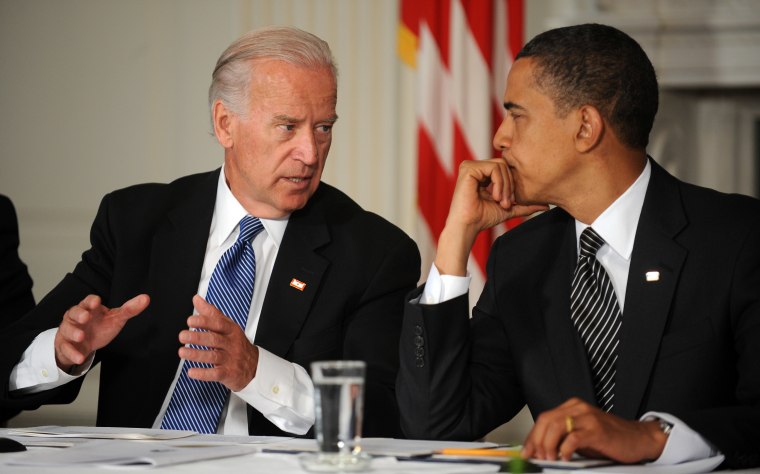President Barack Obama has promised to ramp up spending from the $787 billion stimulus fund and create or save 600,000 jobs by the end of the summer. It's an effort to shift the focus away from persistently rising unemployment and beat back criticism that the money isn't flowing fast enough.
Those promises aren't new.
Stimulus spending had always been expected to rise sharply this summer, and the White House has been predicting that 600,000 job total for about a month.
Obama faces souring public opinion over his handling of the economy, which has shed 1.6 million jobs since the stimulus was signed in February. That total has far overshadowed White House announcements estimating the effort has saved 150,000 jobs, a figure that is so murky it can never be verified.
Monday's announcement sought to reposition Obama in the driver's seat of America's recovery. It portrayed the president as revving up the engine of the stimulus, but it was something federal agencies were already planning to do anyway.
Overly optimistic predictions
Obama spoke about "modest progress" in the economy, citing fewer jobs lost last month than expected. He said he hopes to build on that in the months ahead with stimulus programs.
"We've done more than ever, faster than ever, more responsibly than ever, to get the gears of the economy moving again," he said.
But he acknowledged, "I'm not satisfied. We've got more work to do."
And for the first time, the administration admitted the economic forecasts it used to sell the stimulus were overly optimistic.
"At the time, our forecast seemed reasonable," said Vice President Joe Biden's top economic adviser, Jared Bernstein, explaining that the White House underestimated the scope of the recession. "Now, looking back, it was clearly too optimistic."
By this point, according to earlier White House economic models, the U.S. unemployment rate should be on the decline. The forecasts White House advisers used to drum up support for the plan projected today's unemployment rate would be about 8 percent. Instead, it sits at 9.4 percent, the highest in more than 25 years.
By any measure, spending $44 billion in four months — and with unprecedented transparency — is an uncharacteristic feat in Washington. But the expectations have been even higher, and restoring the economy has proven tougher than the administration expected.
Several economists said Monday the economy is unlikely to see any boost from the stimulus before next year.
"It takes time to organize projects, to get the bids in, the funds out and the work started," said Nigel Gault, chief U.S. economist at IHS Global Insight.
Addressing Republicans' criticisms
Obama's disapproval rating on the economy has risen from 30 percent in February to 42 percent, according to a Gallup poll completed May 31. Sensing weakness on a signature issue of Obama's presidency, congressional Republicans are renewing their criticisms that the stimulus plan has not shown results, only mounting debt.
"This is President Obama's economy, and his administration must provide results and specifics rather than vague descriptions of success that seem to change by the week," said House Republican Whip Eric Cantor of Virginia. "The administration looks dramatically out of touch as they highlight the creation of temporary summer employment in the face of job losses unseen in decades, record unemployment and massive deficits."
Obama shot back at skeptics during Monday's Cabinet meeting.
"Now, I know that there's some who, despite all evidence to the contrary, still don't believe in the necessity and promise of this recovery act," he said.
"And I would suggest to them that they talk to the companies who, because of this plan, scrapped the idea of laying off employees and, in fact, decided to hire employees. Tell that to the Americans who received that unexpected call saying, 'Come back to work.'"
